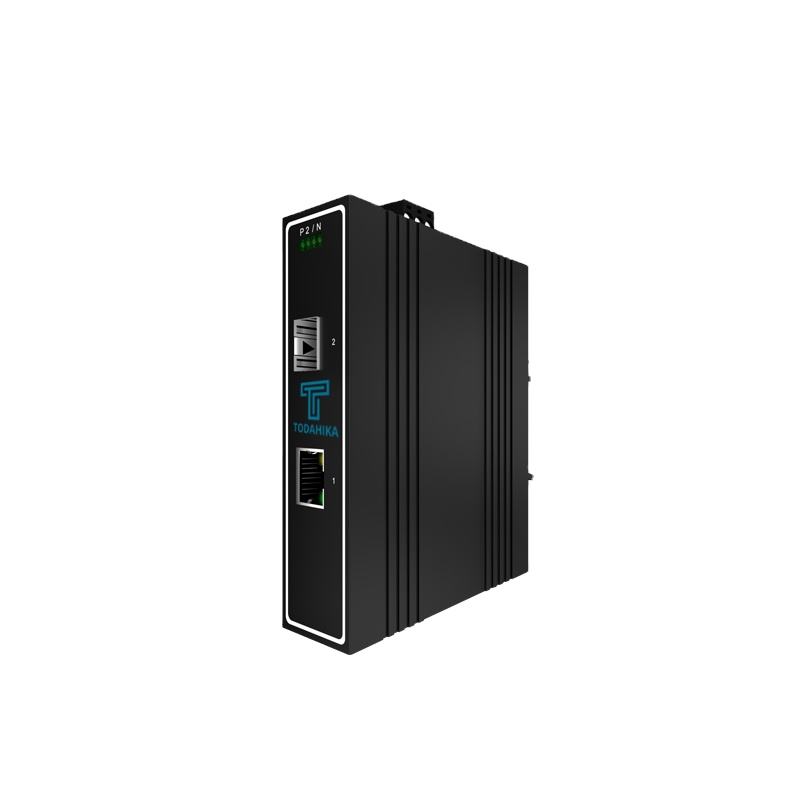With the continuous development of industrial automation and smart manufacturing, the role of industrial network switches is becoming more and more important. These devices are critical for connecting a variety of industrial equipment and systems and must adhere to strict industry standards to ensure reliability, safety and performance in harsh environments. Understanding these standards is critical for manufacturers, integrators and end users alike.
Major Industry Standards for Industrial Network Switches
IEEE 802.3 Ethernet standard:
The IEEE 802.3 standard is the backbone of Ethernet technology and defines the protocol for wired connections in local area networks (LANs). Industrial network switches must comply with this standard to ensure compatibility with other Ethernet devices and networks. This includes support for speeds from 10 Mbps to 100 Gbps and beyond.
IEC 61850 for substation automation:
IEC 61850 is the global standard for substation communication networks and systems. Industrial network switches used in energy and utilities must comply with this standard to enable real-time communications, interoperability and integration within substations. It ensures that switches can meet the high-speed, low-latency requirements required for substation automation.
IEC 62443 Cybersecurity:
With the rise of connected devices and the Industrial Internet of Things (IIoT), cybersecurity has become a top priority. The IEC 62443 standard addresses cybersecurity issues in industrial automation and control systems. Industrial network switches must include strong security features such as authentication, encryption, and access control to protect against cyber threats.
IEC 60068 environmental testing:
Industrial network switches often operate under extreme conditions such as heat, moisture, and vibration. The IEC 60068 standard outlines environmental testing procedures to ensure these devices can withstand harsh industrial environments. Compliance with this standard ensures that the switch is durable and reliable under a wide range of operating conditions.
Railway applications EN 50155:
The EN 50155 standard specifically addresses electronic equipment used in railway applications. Industrial network switches used in trains and rail infrastructure must meet this standard to ensure reliable performance under the demanding conditions of the rail environment. This includes resistance to shock, vibration, temperature fluctuations and electromagnetic interference.
PoE (Power over Ethernet) standards:
Many industrial network switches support Power over Ethernet (PoE), allowing them to transmit data and power over a single cable. Compliance with the IEEE 802.3af/at/bt PoE standard ensures that the switch can safely and efficiently power connected devices such as IP cameras, sensors, and wireless access points without the need for a separate power supply.
The importance of adhering to industry standards
Compliance with industry standards is critical for industrial network switches for several reasons:
Reliability: Compliance with standards ensures switches operate reliably under a wide range of industrial conditions, reducing the risk of network failure.
Interoperability: Standards ensure that switches can integrate seamlessly with other devices and systems for smooth and efficient operation.
Security: Compliance with standards such as IEC 62443 helps protect industrial networks from cyber threats, ensuring data and operations are secure.
Long service life: Standards such as IEC 60068 ensure that switches can withstand harsh environments, extending their service life and reducing maintenance costs.
Looking Ahead: The Future of Industrial Networking Standards
As the industry continues to adopt more advanced technologies, such as 5G, artificial intelligence and edge computing, standards for industrial network switches will continue to evolve. Future standards are likely to focus on enhanced cybersecurity, higher data speeds and improved energy efficiency to meet the needs of next-generation industrial networks.
For companies hoping to remain competitive in the industrial sector, it is critical to understand these standards and ensure that their equipment complies with them. By adhering to these industry standards, manufacturers can ensure that their industrial network switches meet the highest levels of performance, security and reliability, driving the future of industrial connectivity.
Post time: Aug-17-2024




